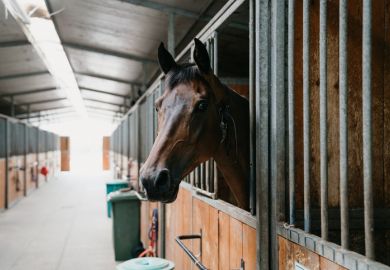Not just one revolution, but multiple, interlinked revolutions: biological, informational, environmental. That is what we have got today. And that is rather the style of Walter Truett Anderson's canter round the contemporary technological horizon: strong on declaratives, less impressive when it comes to analysis.
Mind you, an analysis which did justice to what he describes would be impressive indeed. His thesis is that the convergence of biotechnology and information technology is leading us through an evolutionary transition to a new world. In this world the coevolution of culture and technique leads to fundamental changes in almost every aspect of life and society, which we urgently need to think through and try to manage for the best.
He is thus one of those writers whose thought contributes to the colonisation of the future, in Anthony Giddens's phrase, and to a current crop of "what is round the corner" books. Does he have anything to add to, say, Megatrends, at one end of a spectrum, or Preparing for the 21st Century, at the other?
Perhaps this: a stronger sense than most of the importance of the convergence of biological and computing and communications technologies. Manipulating DNA is, after all, altering biological information. Anderson tries hard to explore all the aspects of this convergence, as it ushers in what he calls the bio-information society - from drugs, vaccines and genetic screening and therapy to agricultural and environmental management, which depends crucially on new ways of gathering and synthesising data. Gene banks store important biological information, electronic tagging returns information needed for conservation and ecological studies. Bio-industries, from mining to manufacturing, are altering established ways of doing things. All are being woven into a global web of communication and computer-mediated information exchange.
His examples, mainly culled from innumerable conferences he has attended as a futurist and journalist, or from secondary sources, are usually apt and clearly explained. The drawback is that he wants to cover such a broad territory that each is only discussed briefly. The individual discussions, like that of genetics and eugenics, tend towards the commonplace. Some, like a section on animal rights, seem to be there more because they interest Anderson, albeit briefly, than because they fit into any overall scheme. Nevertheless, he covers an impressive range of subjects in a shortish book, with commendably few errors.
However, the book becomes disappointing when the reader realises that it is going to remain mainly descriptive rather than analytical right to the end. Aside from some perceptively critical remarks about deep ecology, he has little to say about how to think about the myriad changes that are now in train. The closing section is an optimistic call for new ways of thinking about global governance, but needs much more detailed development to be convincing. And his general weakness for technologically determinist assumptions undermines the sense he seems to want to convey that the mutual shaping of technologies, societies, and individuals is what matters.
The big question remains, if he is describing real phenomena, who is going to give us the tools to understand and, perhaps, steer them? At the moment, the analysis tends to be pursued in the confines of academic disciplines which only treat part of the picture, while the larger scene is only acknowledged in books like this one which, inevitably, do not really live up to their ambitions.
Jon Turney is senior lecturer in science communication, University College London.
Evolution Isn't What It Used To Be: The Augmented Animal and the Whole Wired World
Author - Walter Truett Anderson
ISBN - 0 7167 2998 9
Publisher - W. H. Freeman
Price - £13.95
Pages - 223
Register to continue
Why register?
- Registration is free and only takes a moment
- Once registered, you can read 3 articles a month
- Sign up for our newsletter
Subscribe
Or subscribe for unlimited access to:
- Unlimited access to news, views, insights & reviews
- Digital editions
- Digital access to THE’s university and college rankings analysis
Already registered or a current subscriber?



